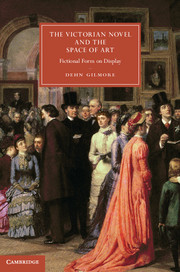This interdisciplinary study argues for the vital importance of visual culture as a force shaping the Victorian novel's formal development and reading history. It shows how authors like Charles Dickens, William Makepeace Thackeray, Wilkie Collins and Thomas Hardy borrowed language and conceptual formations from art world spaces - the art market, the museum, the large-scale exhibition, and art critical discourse - not only when they chose certain subjects or refined certain aspects of realism, but also when they tried to adapt various genres of the novel for a new and newly vociferous mass audience. Quandaries specific to new forms of public display affected authors' sense of their relationship with their own public. Debates about how best to appreciate a new mass of visual information impacted authors' sense of how people read, and consequently the development of particular novel forms like the multi-plot novel, the historical novel, the sensation novel, and fin-de-siècle fiction.
Available through Cambridge University Press
